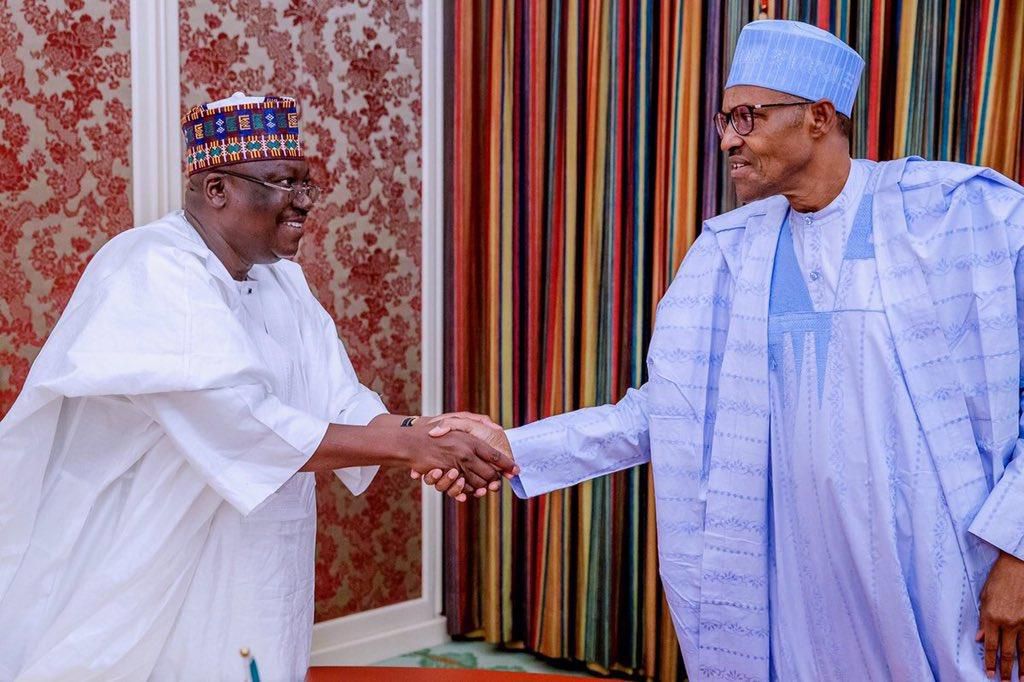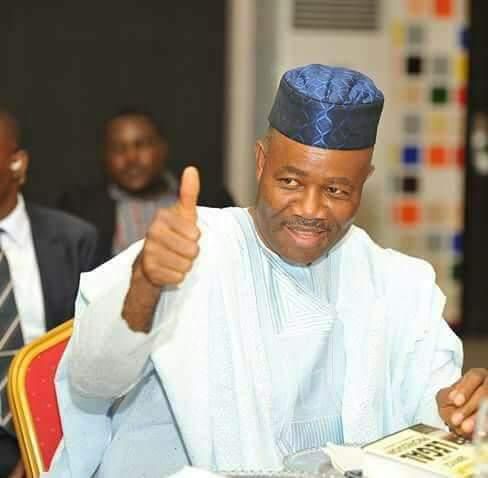3 easy steps to make Senate's ministerial screening process better
![The President of the Senate, Dr Ahmad Lawan [Twitter/@SPNigeria]](https://image.api.sportal365.com/process/smp-images-production/pulse.ng/13082024/98d1ad1c-513a-4fee-b609-bc2df0d5405e?operations=autocrop(700:467))
After five consecutive work days, the Senate screening of all of President Muhammadu Buhari's 43 ministerial nominees came to an end on Tuesday, July 30, 2019.
If you asked the presidency, the screening exercise was proof that the 9th Senate is a diligent one that can be trusted to ensure a swift and efficient process.
However, if you ask, say, a random journalist whose job it was to stay glued to the screen to watch and report on the entire process, then you might hear a few groans.
Maybe those groans would even sync with that of some Nigerians who have taken to social media to express their displeasure with how the screening process played out over the past week.
President Buhari's list was bound to be controversial, especially since he made Nigerians wait nearly two months after his inauguration for it, but the screening of his nominees has made criticism of the list even harsher.
It goes without saying that the criticism against this year's screening process is one that has existed long before this current president, but that shouldn't mean it should continue to be upheld in its mediocre glory.
A considerable number of Nigerians were highly critical of certain parts of the screening, and here are three easy ways to fix that:
1. Attach portfolios to nominees before screening
As has been tradition with the Nigerian executive, when Buhari flogged the list of nominees to the Senate last week, he didn't attach what ministries they'll be appointed to.

This created a unique problem of senators screening nominees without any significant idea of where they'll eventually end up.
Many of the questions posed to nominees were either general questions that didn't do anything to prove their competence in whatever ministries they would eventually be assigned to, or questions based on their previous professional and/or political experience, which also didn't particularly test competence for their eventual ministerial roles.
For example, Festus Keyamo, who was impressive during his screening, was grilled on his knowledge of the law, because he's a Senior Advocate of Nigeria, on the assumption that he might end up as the Minister of Justice.
However, Abubakar Malami, the man who filled that role during Buhari's first term, has also been reappointed and will most likely return to the same ministry.
The consequence of this is that Keyamo will more likely end up as the Minister of Sports, or in any other ministry, for which his competence was not tested during the screening because there just was no way to know.
The entire screening process played out quite like fulfilling the requirements to be appointed as a circus clown, only to be appointed a brain surgeon instead.
An easy way to get around this problem is for future presidents to attach the portfolios so senators can be fully aware that they're clearing a bricklayer to do a bricklayer's job, not clearing them to be appointed a rocket scientist.
2. Scrap the "Take a bow and go" policy
The most controversial part of the screening process was the implementation of an age-long "Take a bow and go" policy which forbade questioning ministerial nominees who have previously served as legislators.

While this policy was believed to only apply to former federal legislators, Senate President, Ahmad Lawan, extended it to cover state legislators when former Rivers State House Speaker and governor, Rotimi Amaechi, appeared for screening. This then became the policy for state lawmakers.
Then it was further stretched to cover nominees whose 'loyalty' could be vouched for, and nominees who were admirable party leaders, and nominees who came from the Senate President's state.
Women were not left behind, as the Senate failed to question any of Buhari's seven female nominees due to its patronising decision to be "gender-sensitive".
By the time the screening exercise concluded, the "Take a bow and go" policy was consistently violated so much that more than half of the nominees were not questioned at all.
On the final day of screening, Senator Orji Uzor Kalu urged his fellow lawmakers to not question Saleh Mamman, a nominee, because he's "not a very good orator".
"You might see him having stage fright. He's not a very good speaker," the Senate's chief whip appealed.
For the very obvious reason that the "Take a bow and go" policy denies Nigerians the opportunity to be able to properly assess potential ministers, it left a bitter taste in the mouth of many.
The practice may have had good intentions when it was first instituted, but based on what played out during the past screening exercise, it's a terrible policy that's well-primed for manipulation by lawmakers to push through nominees without good reason.
It's hard to prove to Nigerians that the screening process is an efficient one if nominees are not properly pressed to assess their competence.
3. Screen nominees through Senate committees
![Senator Dino Melaye [Instagram/@dinomelaye]](https://image.api.sportal365.com/process/smp-images-production/pulse.ng/13082024/36a339dd-accc-4d8d-8f93-870df02b8ebf)
On Tuesday, the deputy senate president, Ovie Omo-Agege, complained of fatigue, declaring that senators were tired of screening after five days.
He only said it as an excuse to also get Mamman off the hook of questions from his colleagues, but it was a concern for those who observed the process for days.
The Senate has a total of 109 lawmakers, all of whom were crammed into the upper legislative chamber of the National Assembly to grill each nominee within an allotted one hour.
It's very obvious to see why this system can be inefficient as there's simply not enough time for enough lawmakers to ask nominees questions.
There were periods during the screening when Senator Lawan noted that there were dozens of lawmakers queued up to ask a nominee questions, but only a few of them got the chance.
The easiest way to cut the fat and pave the way for a more rigorous process is to break down the list and send nominees to face appropriate committees for screening.
For this to be possible, the president would first have to send the list of nominees with their appropriate portfolios.
As a result, someone nominated as a potential Minister of Information by the president would be screened by the handful of lawmakers in the Senate Committee on Information with the proper methodology to determine competence.
This should also put an end to the disingenuous "Take a bow and go" policy and give more room for a more efficient process.
There is no reason why the president cannot attach portfolios to nominees, and no reason why nominees should get an easy pass as a result of medieval politics that fail to serve the Nigerian people.
)

)
)
)
)
)
)